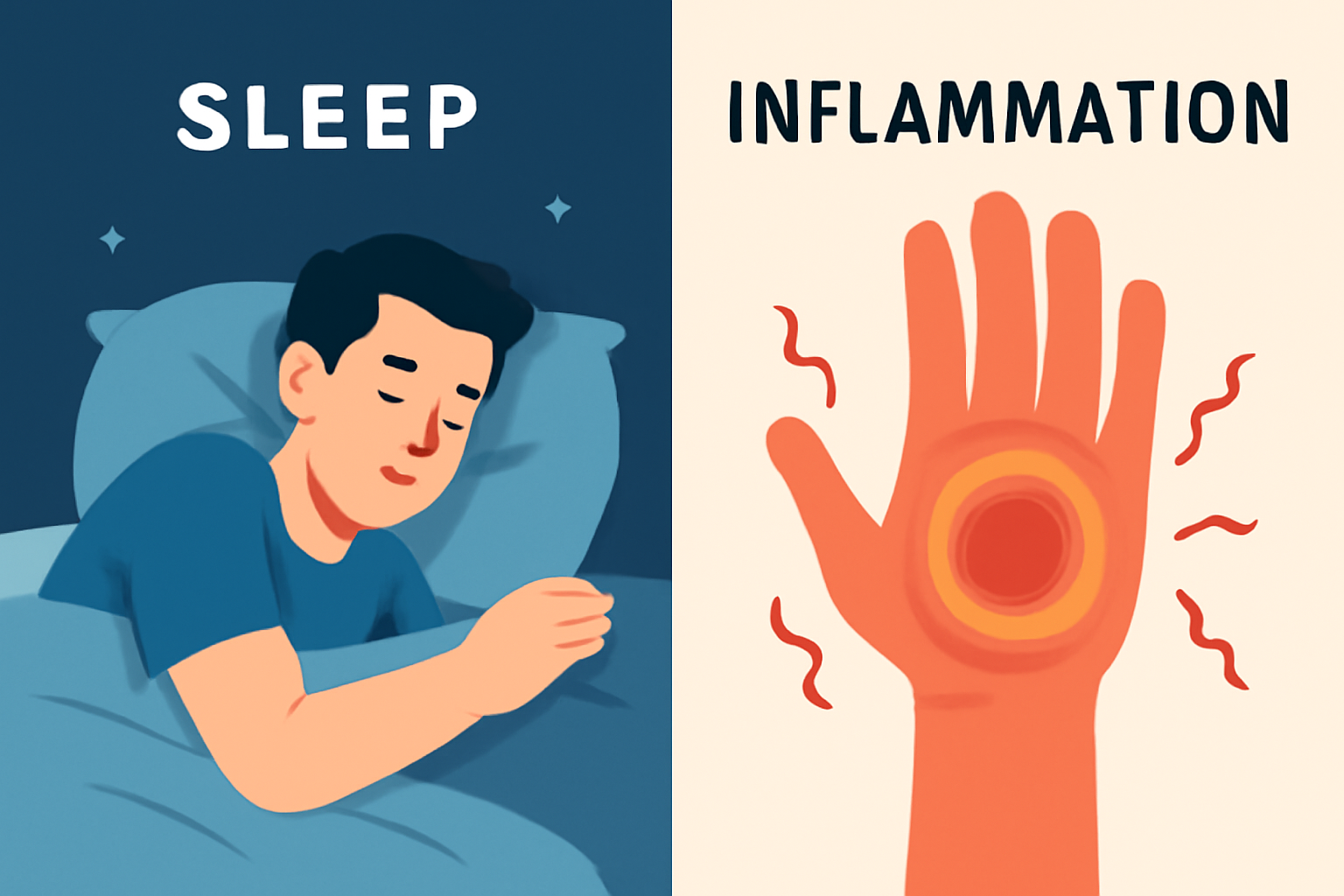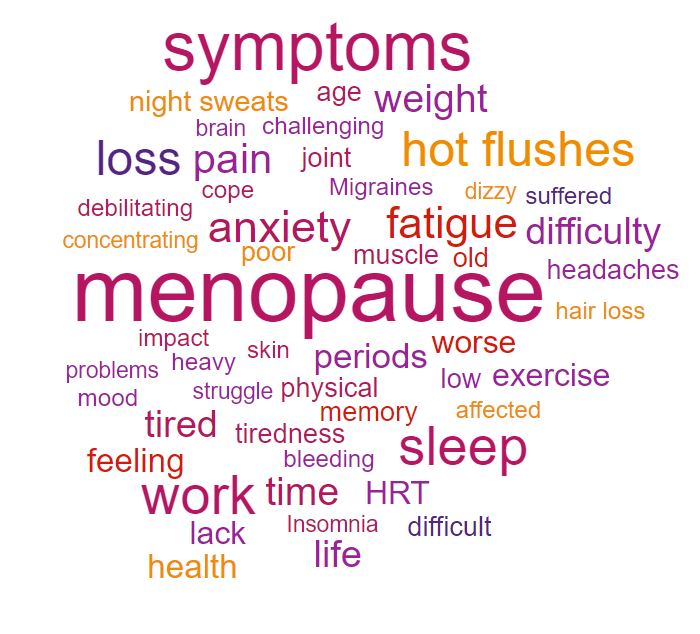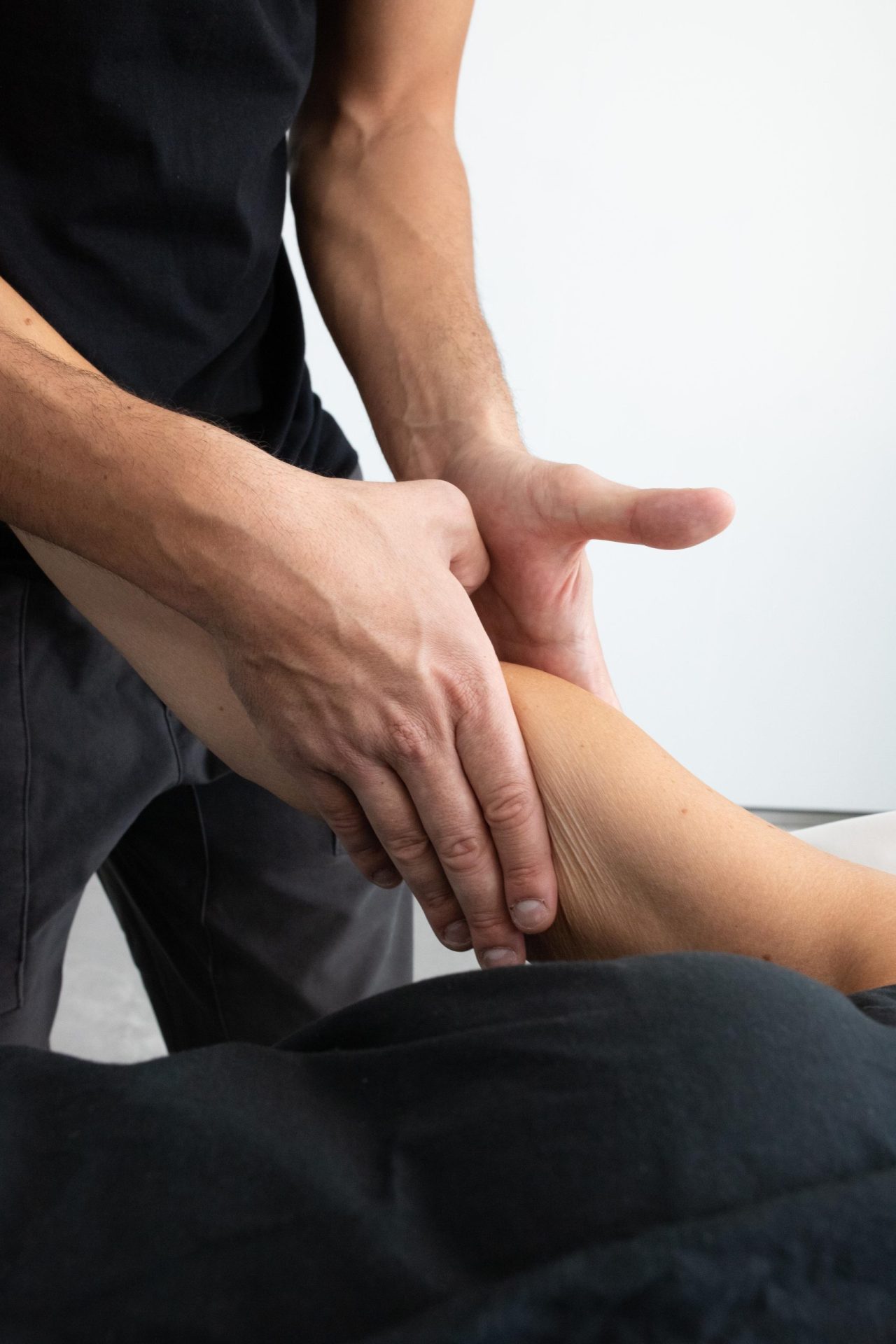Sleep is more than just a nightly ritual; it is a fundamental biological process that impacts virtually every system in the body. One of the most profound connections uncovered in recent years is the link between sleep and inflammation. Poor sleep doesn’t just make you groggy — it can worsen inflammation, prolong recovery from injuries, and exacerbate pain, especially in joints and muscles.
In this article, we explore how inadequate or poor-quality sleep contributes to inflammatory processes in the body and how that manifests in common pain areas such as the knees, neck, and shoulders. We also discuss the best ways to manage these pains, including using effective relief products like anti-inflammatory creams, pain relief gels, and sports injury treatments.
How Sleep Affects Inflammation
Inflammation is the body’s natural response to injury or infection. However, when inflammation becomes chronic, it can lead to long-term damage and discomfort. Sleep plays a crucial role in regulating inflammatory responses. Studies have shown that even one night of poor sleep can increase markers of inflammation such as C-reactive protein (CRP) and interleukin-6 (IL-6).
During deep sleep, the body produces cytokines, which are proteins that help fight infection and reduce inflammation. When you don’t get enough quality sleep, your body makes fewer cytokines, impairing your immune response and allowing inflammation to persist or worsen.
The Vicious Cycle: Pain and Sleeplessness
Pain and sleep have a bidirectional relationship. Chronic pain disrupts sleep, and poor sleep intensifies pain sensitivity. Individuals suffering from knee pain, neck stiffness, or shoulder discomfort often find themselves in a vicious cycle where they can’t sleep because of pain, and their pain gets worse because they’re not sleeping well.
For instance, those with osteoarthritis may experience more joint stiffness after a restless night. Similarly, people recovering from sports injuries or dealing with musculoskeletal tension often report worsened symptoms after poor sleep.
Common Pain Points Affected by Inflammation
- Knee Pain
Knee joints bear much of the body’s weight and are particularly susceptible to inflammation due to arthritis, injuries, or overuse. Lack of sleep can aggravate swelling and stiffness in the knees, slowing down recovery and making simple activities like walking more painful.
Solution: Using targeted knee pain relief products such as compression sleeves, hot/cold therapy, and anti-inflammatory creams can help. Incorporating these into a bedtime routine can reduce inflammation and promote better sleep.
- Neck Pain
Neck pain is frequently caused by poor posture, stress, or injuries like whiplash. Inflammatory responses can worsen tension and restrict mobility, especially after sleeping in an awkward position.
Solution: Opt for ergonomic pillows and apply instant relief neck pain sprays or gels that offer quick relief. These products typically contain menthol, camphor, or diclofenac, which help reduce inflammation and ease discomfort.
- Shoulder Pain
Shoulders are vulnerable to overuse injuries, tendonitis, and bursitis, all of which are rooted in inflammation. This pain can make it difficult to find a comfortable sleeping position, disrupting rest.
Solution: The best gel for shoulder pain will combine anti-inflammatory and soothing agents that penetrate deeply into the tissue. Look for products that offer long-lasting relief and quick absorption.
Sports Injuries and Sleep Recovery
Athletes and active individuals often overlook the healing power of sleep. Sports injuries like sprains, strains, and microtears need ample rest and recovery. Sleep is the time when growth hormone is released, aiding tissue repair and muscle regeneration.
Solution: Use sports injury products that include muscle rubs, joint support, and inflammation-reducing balms to ease soreness before bedtime. Pairing these with good sleep hygiene enhances recovery significantly.
Choosing the Right Anti-Inflammatory Products
When dealing with pain and inflammation, topical treatments can offer localized relief without the systemic effects of oral medications.
Features of the Best Anti-Inflammatory Creams:
- Fast absorption and non-greasy formula
- Combination of natural and pharmaceutical ingredients
- Contains NSAIDs like diclofenac or herbal components like turmeric, arnica, or eucalyptus
- Long-lasting relief
Regular application of high-quality anti-inflammatory creams before bedtime can reduce overnight pain flares, improving sleep duration and quality.
Sleep Hygiene Tips to Reduce Inflammation
Improving your sleep can directly lower inflammation and pain sensitivity. Here are a few science-backed sleep hygiene practices:
- Stick to a Schedule: Go to bed and wake up at the same time every day, even on weekends.
- Limit Blue Light Exposure: Reduce screen time at least an hour before bed.
- Create a Calm Environment: Use blackout curtains, white noise machines, and keep your room cool and quiet.
- Mind What You Eat: Avoid caffeine, alcohol, and large meals before bed.
- Practice Relaxation Techniques: Gentle yoga, meditation, or deep breathing can calm the nervous system and prep your body for sleep.
Final Thoughts
The connection between sleep and inflammation is undeniable. Poor sleep increases inflammation, and inflammation intensifies pain — especially in joints like the knees, neck, and shoulders. However, with the right strategies and tools, you can break this cycle.
Combining smart sleep habits with effective relief products — such as the best anti-inflammatory cream, instant neck pain relief gel, shoulder pain gel, and sports injury treatments — can significantly improve both your quality of sleep and your quality of life.
Remember, healing doesn’t just happen in the doctor’s office or gym — it begins in the bedroom, with a good night’s rest.



